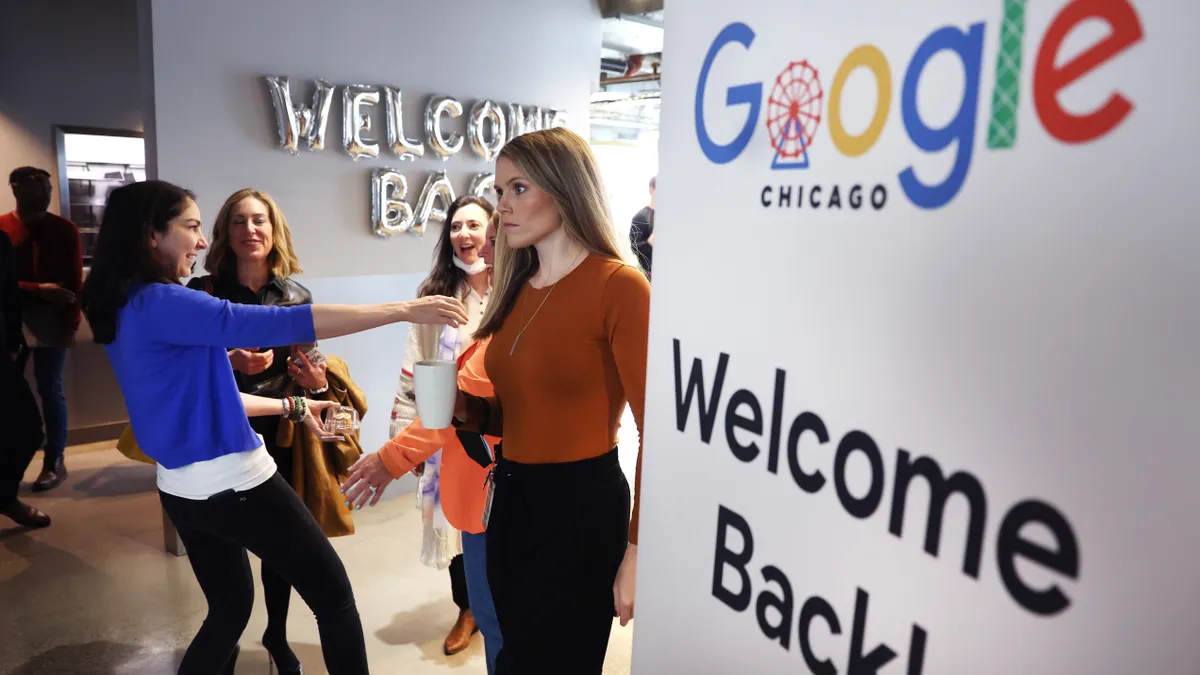Dive Brief:
- Gender bias in hiring can be costly for companies. Keeping discrimination unchecked results in productivity losses and, ultimately, financial losses, according to a study from Oregon State University (OSU) published Jan. 19 in the Journal of Management.
- After reviewing prior studies on gender bias and hiring in the workplace, the researchers used a series of computer simulations to analyze how candidates are recruited, evaluated and selected for open positions. The results demonstrated that lingering bias can "undermine the effectiveness of otherwise successful targeted recruitment efforts," and affect a company's bottom line, according to the report. For example, a 1% gender bias effect at Fortune 500 company that hires 8,000 workers in a year can result in at least 32 failed hires and poor hiring decisions, researchers stated. This may result in productivity losses of about $2.8 million per year, according to the report.
- There also may be legal consequences for keeping gender bias unchecked. "When carried through the hiring decision-making process, tiny amounts of bias will balloon into a high probability of discriminatory hiring outcomes in the eyes of the law, which also has important financial consequences for companies that end up hiring less-qualified candidates," Jay Hardy, lead author of the study and assistant professor of management in OSU's College of Business said in a statement.
Dive Insight:
Discriminatory action against job candidates also appears to put companies at risk for costly legal action.
The U.S. Department of Labor's (DOL) Office of Federal Contract Compliance Programs (OFCCP), for example, announced Feb. 1 that Google will pay more than $3.8 million to more than 5,500 employees and job applicants. The settlement addressed allegations the tech giant discriminated against female and Asian job applicants at the company's Kirkland, San Francisco, and Sunnyvale locations. DOL also alleged the company underpaid thousands of women in software engineering positions at its facilities in Mountain View, Seattle and Kirkland. The tech company agreed to review its hiring process for software engineering positions "to ensure equal access to opportunities for all eligible and willing applicants and employees," according to the conciliation agreement. Discrimination in hiring is a violation of Executive Order 11246 — Equal Employment Opportunity, but Google denied any violation or non-compliance with the order.
A study published in March 2020 in The Astronomical Society of the Pacific journal found that when gender references were removed from applications for scientific researchers, female principal investigators were chosen at a higher rate than their male counterparts. AI-enabled applicant tracking systems and machine learning may have the potential to counteract bias in the recruiting process, but that's often not the result, research shows. In 2015, Amazon stopped using an AI recruiting tool after discovering it perpetuated hiring bias against women, Reuters reported.
As companies continue to invest in diversity, equity and inclusion practices, unconscious bias training is on the rise. Many employers are also focusing on a holistic view on the value of diversity: "You have to be thinking about these things, drawing on those learnings and revisiting them over time," Shelley Osborne, vice president of learning at Udemy told HR Dive in a previous interview. "There's no sort of, 'Oh, I took the unconscious bias training. So I'm good. I'm done,'" she said. "That's not going to cut it."















